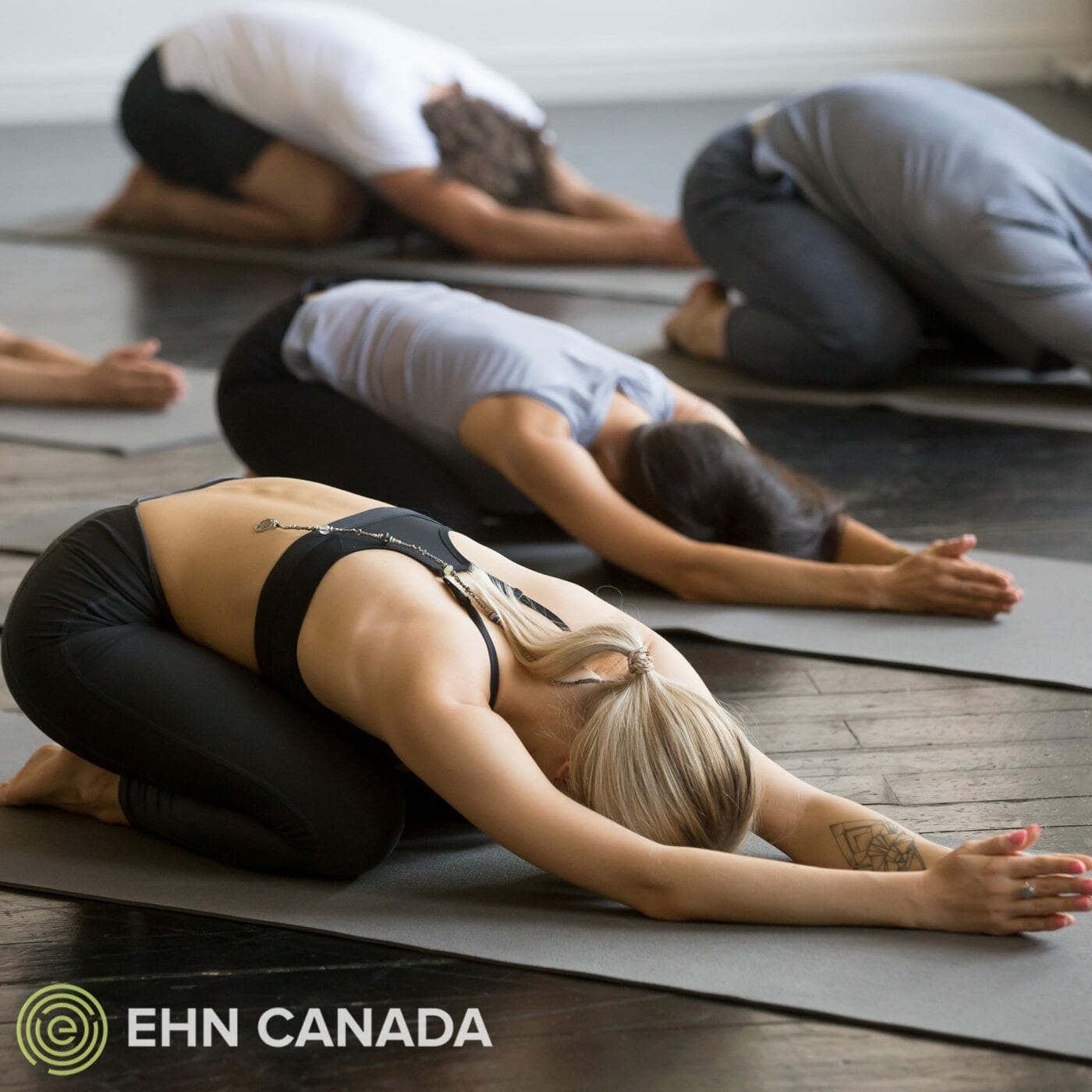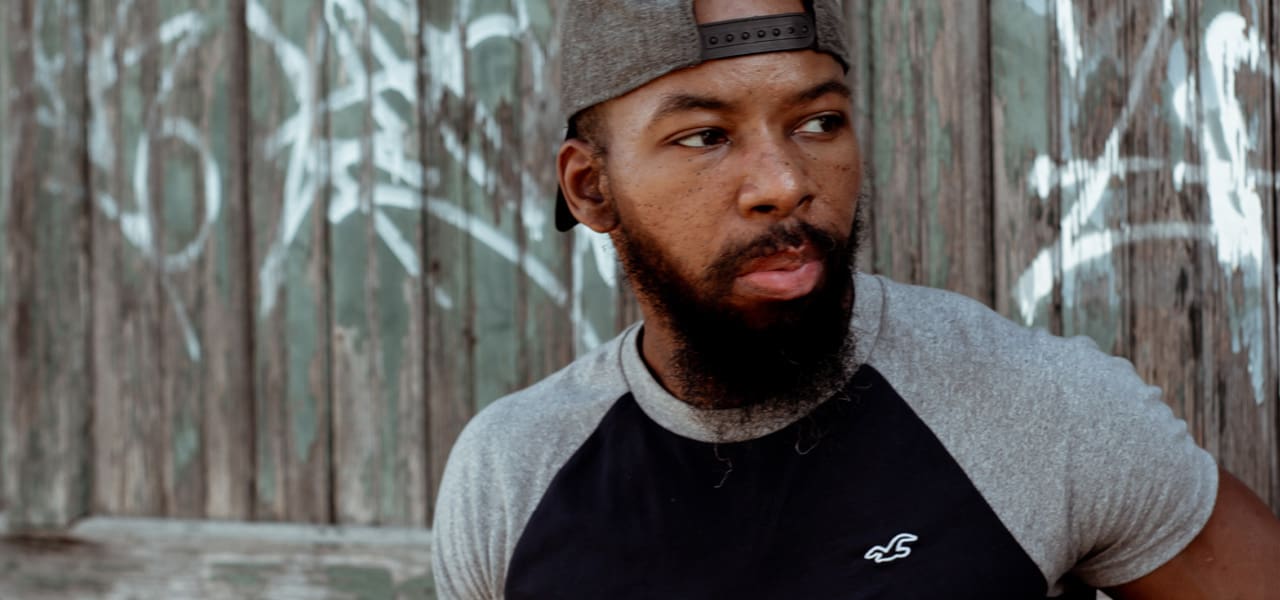Opinion by EHN Staff
Written by Lisa Nixon, an employee at Edgewood Treatment Centre.
Yoga embodies unity of mind and body; thought and action; restraint and fulfilment; harmony between man and nature; a holistic approach to health and well-being. It is not about exercise but to discover the sense of oneness with yourself, the world, and nature. —Narendra Modi
Because addiction often creates a sense of disconnection from oneself, one’s family, one’s community, and one’s environment—discovering this sense of “oneness with yourself” is an integral part of recovering from addiction.
The Benefits of Yoga for Addiction and Trauma Recovery
Yoga has many potential benefits for addiction recovery. Taryn Strong, creator of SHE RECOVERS Yoga, trauma-informed Yoga Instructor at Kripalu Center for Yoga and Health, and Teacher Trainer, identifies the following ways in which yoga can help with addiction recovery.
Parasympathetic activation
“Yoga can help activate the parasympathetic nervous system (physiological relaxation response) in the body, regulating hormone levels, releasing tension in the muscles, and helping digestion.”
Improved interoception
Practicing Yoga can also help a recovering individual improve interoception, the ability to sense internal conditions and sensations in one’s body. By improving their awareness of what’s happening in their body, recovering individuals can better understand how they feel physically and emotionally.
Trauma recovery
For individuals who are recovering from PTSD, who may have lost their sense of self, Taryn suggests that that “yoga can aid with reclaiming the body.” A Trauma Sensitive approach guides individuals to notice and reconnect with their bodies in ways that feel safe for them.
Other benefits
Other benefits of yoga include stress reduction, reduced anxiety, improved flexibility, chronic pain relief, enhanced quality of life, increased awareness and mindfulness, feelings of empowerment, and improved ability to experience and understand emotions.
Tips for People Who Are New to Yoga
For people new to yoga, Taryn encourages individuals to “remember that it is called a yoga ‘practice’ and we are yoga ‘students’—so be gentle with yourself physically and mentally.” This self-compassion has been an integral part of her own recovery process. “Movement has always been healing, and my favourite medicine. Yoga has reconnected me with my body and confidence. [The difference between how I feel] before and after [a practice] is indescribable! It has been an amazing and empowering compliment to my patchwork of recovery activities.”
Taryn encourages individuals in treatment to stay the course. “Focus on connecting with your breath in a way that feels right for you. Take breaks and rest whenever you need. You may be connecting with your physical body and feeling your feelings for the first time in a long time. Take it easy. And make sure you have support outside of your yoga classes.”
Trauma Sensitive Yoga in Our Residential Addiction Treatment Programs
At Edgewood Treatment Centre, Trauma Sensitive Yoga is a regular part of our residential addiction treatment programs. Facilitated by Cheryl Wilson, Fitness Supervisor and Trauma Sensitive Yoga Facilitator, Trauma Center Trauma Sensitive Yoga (TC-TSY) is an evidence-based adjunct therapy for complex developmental trauma, or chronic treatment-resistant PTSD. This specialized form of Yoga is very different from the more conventional types with which most people are familiar.
Many schools of yoga focus solely on the physical pose, or the external experience. Trauma Sensitive Yoga is an invitational process, with focus placed on supporting individuals to reconnect with their internal experiences. “Patients need to feel a sense of safety,” says Cheryl. “In order to create this invitational, safe environment, we must build trust through fostering relationships.” Cheryl has the opportunity to build stong trust and connection with patients at Edgewood, because they’re in a residential program. She feels that this support is integral to healing trauma. “In other forms of Yoga there may be many triggers, including the following: sanskrit, focus on the physical aspect of poses, accelerated or controlled breathing, and physical touch (assisting) from the facilitator. Trauma Sensitive Yoga is an intentional and invitational process. Patients are guided to recognize that they have [autonomy and agency with regards to] their own bodies—they can choose and they can take time.” Cheryl notes that there is “no perfect way to breath, no perfect pose, or specific goal: it’s about meeting patients where they are, and showing them the process of finding what feels right for their body. It’s about their internal comfort, which is different for every individual.”
With over 15-years experience as a personal and group fitness trainer, and 8 years as the Fitness Supervisor at Edgewood, Cheryl recognized that the physical fitness programming needed to provide patients with a process for deeper healing of complex trauma. Previously trained in Hatha Yoga, Cheryl asked herself where she fit in the Yoga world. Her desire to dive deeper into the healing potential of yoga lead her to completing a 300-hour Trauma Sensitive Yoga Facilitator (TC-TSY) Training in 2019. She obtained this specialized yoga certification through the Trauma Centre, Justice Resource Institute in Boston, MA. Throughout her training Cheryl worked directly with her mentor and leading Trauma Sensitive Yoga Expert, David Emerson.
The TC-TSY methodology is based on central components of Hatha Yoga where patients engage in a series of physical poses and movements, breath awareness, and grounding techniques. Cheryl is grateful that she can help patients experience empowerment and cultivate more positive relationships with their bodies. “A patient recently shared with me, that through yoga at Edgewood, she had felt in control of her body for the first time ever. The healing that happens here is integral to trauma recovery.”
A Complementary Therapeutic Modality
Trauma Sensitive Yoga uses a bottom-up approach to healing and is a complementary tool used together with other therapeutic modalities such as Cognitive Behavioural Therapy (CBT), Dialectical Behavioural Therapy (DBT), Medication Assisted Treatment (MAT), and somatic therapy.
For many individuals new to recovery, articulating feelings or experiences can be difficult. Taryn Strong, creator of SHE RECOVERS Yoga, speculates that the doorway for somatic interventions for complex trauma resides within Broca’s area of the brain. The research of trauma specialist Bessel van der Kolk, MD, has shown that when people are in the trauma state, their brainstem and limbic system go into hyperarousal, which in turn causes inhibition of Broca’s area. Thus, Broca’s area, which is required for speech production, can become less active as an individual is exposed to trauma. Taryn hypothesizes that because of this “some people are simply unable to speak about certain experiences or fully articulate their experiences early in recovery.” Taryn believes that an important skill developed in yoga is interoception, and she has witnessed its potent benefits for individuals who have tendencies to disassociate from their bodies. “Interoception has a foundational role in self-regulation, self-awareness, social thinking, problem solving, etc. [During yoga practice], the neural pathways of interoception are strengthened through a bottom up approach and relational connection with oneself and others can be restored.”
The Issues in Our Tissues
Taryn subscribes to the belief that emotional memories are physically stored in our muscles and connective tissues. The accumulation of negative emotional memories that are not released from our bodies may, over time, manifest as addiction, chronic stiffness or tightness, disease, repetitive-strain injuries, etc. Hence, she believes that a comprehensive treatment approach, including physical therapeutic modalities for patients’ bodies, is crucial for successful long-term recovery. Taryn asks, “have you ever experienced emotions on the yoga mat that totally surprised you? Or had a ‘random’ memory come to the surface while on your mat? These are examples of releasing the ‘issues in your tissues.’”
At Edgewood, we encourage our patients to allow the full spectrum of their emotions to arise without judgment. In addiction treatment, much of what had been previously suppressed by a mood-altering substance or addictive behaviour may come to surface. Because patients are no longer suppressing their emotions using substances like alcohol or drugs, or behaviours like sex and gambling, healing modalities like Trauma Sensitive Yoga can help them recognize and experience their emotions in a healthy ways.
Yoga in Recovery
Yoga can be a beneficial part of patients’ post-treatment recovery plans, helping them improve their self-regulation skills and their ability to navigate their feelings and behaviours. If you have recently completed a residential or outpatient addiction treatment program, there are many opportunities out there to continue your yoga practice.
Cheryl Wilson, Trauma Sensitive Yoga Facilitator at Edgewood, suggests finding a form of yoga that feels right for you and to keep an open mind. She has seen many patients who try yoga for the first time during treatment, who then go on to maintain regular yoga practices after completing their treatment programs.
A Biopsychosocial Approach to Addiction Recovery
At EHN Canada, we’ve learned from experience that comprehensive treatment programs integrating physical, psychological, and social therapeutic modalities give our patients the best preparation for successful long-term recovery. Wellness activities including fitness, yoga, and mindfulness are essential parts of our integrated addiction recovery process. We ensure that our process is accessible for anyone by individualizing it according to the needs and abilities of each patient.
Call Us for More Information
If you would like to learn more about the treatment programs provided by EHN Canada, enrol yourself in one of our programs, or refer someone else, please call us at one of the numbers below. Our phone lines are open 24/7—so you can call us anytime.
- 1-800-387-6198 for Bellwood Health Services in Toronto, ON
- 1-587-350-6818 for EHN Sandstone, in Calgary, AB
- 1-800-683-0111 for Edgewood Treatment Centre in Nanaimo, BC
- 1-888-488-2611 for Clinique Nouveau Depart in Montreal, QC
Additional Resources
Taryn has created an online membership platform called SHE RECOVERS Yoga for women in recovery to practice within the comfort of their own homes.
Yoga of 12 Step Recovery (Y12SR) is a valuable resource for people recovering from addiction. Y12SR hosts weekly meetings that are open and inclusive, offering a model for sustainable relapse prevention. Check the Y12SR website for local meetings in your area.
Further Reading
The Top-Down and Bottom-Up Approaches (Article about healing trauma)
Exploring the therapeutic effects of yoga and its ability to increase quality of life (Research paper)
Post-traumatic stress disorder and the nature of trauma (Article by Bessel van der Kolk)
Yoga as an Adjunctive Treatment for Posttraumatic Stress Disorder: A Randomized Controlled Trial (Research paper by Bessel van der Kolk)



